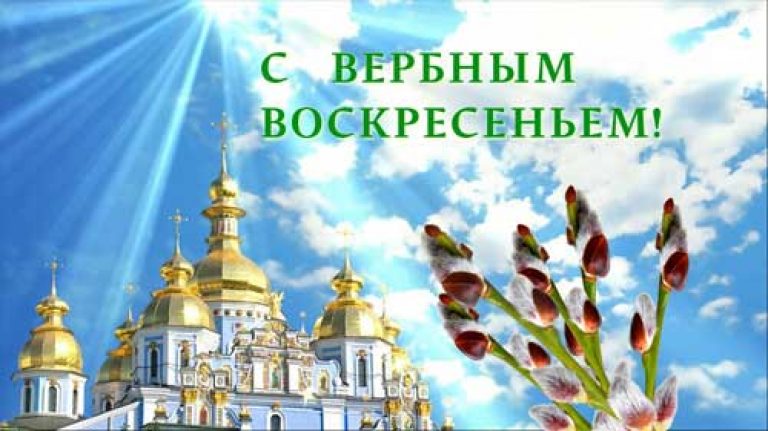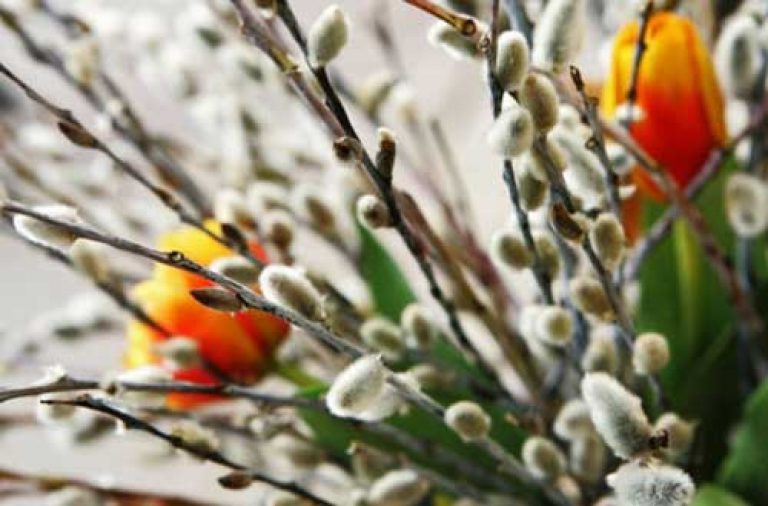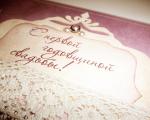Meaning of Palm Sunday
The correct name for this Christian holiday is the Entry of the Lord into Jerusalem. Shortly before this event, Christ performed a miracle of resurrection - he restored life to Lazarus, who had died four days ago, which amazed the Jewish people.
Jesus entered the city as the Conqueror of death and sin, as a King who voluntarily entered the path of bodily suffering in order to open the way to the Kingdom of Heaven for all believers, and granting immortality to their souls.
The Pharisees forbade honoring Christ, but the common people greeted him with joyful exclamations and covered the road with their clothes, palm leaves and willow branches with soft and fluffy buds.
From here came the custom to bring branches of young willow plants - willows or willows - to the church on this day.
To find out what date Palm Day is celebrated, you need to clarify what date according to the church calendar falls on the main Christian celebration - the Bright Resurrection of the Lord. The last Sunday before Easter will be considered Palm Sunday.
Traditions and customs

On a spring day, willow branches are traditionally consecrated in Orthodox churches with holy water and, according to believers, carry a number of healing properties.
The traditions of using willow tree branches as amulets, relieving various troubles, have survived to this day:
- It is customary to place the consecrated willow at the head of the patient and apply it to unhealthy places. This will help the body overcome the disease, restore strength and health.
- Loving parents lightly clapped their children with willow twigs, saying, “It’s not me who whips - the willow beats!”. Thus, they drove away evil spirits from their children, cleansed them from damage and the evil eye.
- To attract success in business, many believers swallowed the young buds of the plant. It was customary to eat three small lumps before the start of some serious enterprise - for good luck.
- Palm Sunday was considered a good day to attract your betrothed. Young unmarried girls were supposed to think about their beloved all day. It was a sure sign that the girl would soon become a bride.
- Willow branches were kept in the house all year and, after the next spring came, they were used as twigs when pasturing cattle. It was believed that this would provide pets with a good offspring and save them from various ailments.
- The villagers have never driven poultry out into the street this Sunday - chickens, geese and turkeys. It was believed that those who were angry with the consecrated witch could pour out their anger on the birds, sending them various ailments and pestilence.
Note! For the rite of consecration, you need to cut branches only from young, strong trees. It is best to break a few twigs near the reservoir and in no case should you use a willow growing near the cemetery.
Signs for Palm Sunday

There are many folk tales associated with this holiday. Basically, they relate to certain atmospheric phenomena outside the window. After all, the harvest, and hence the well-being of the peasant family, depends on what the weather will be like.
Many gardeners and gardeners today carefully store such knowledge, every year convinced of their effectiveness in our modern world:
- It is raining - to a good harvest.
- Clear and warm weather - expect a rich harvest of fruits.
- The frost has fallen - it means that spring bread will rise well.
- The direction of the wind on that day indicates where it will blow all summer.
Do people go to the cemetery on Palm Sunday?
It is so usual in Orthodox culture that many believers on the day of Christian holidays go to visit their loved ones who have already left the world of the living.
However, priests do not always approve of visiting cemeteries on solemn dates for the Church. So, the custom of going to the graves with the whole family on Easter contradicts the very essence of the Bright Resurrection. After all, we celebrate this day with the greatest joy and fun.
Palm Sunday is not considered a day on which it is not recommended to commemorate the dead. Going to the cemetery, putting a few branches and reading a prayer is allowed and approved on this holiday.
Note! There is only one requirement that must be followed - visit the churchyard after the end of the Sunday service.
What can not be done on a holiday?

Most diligent parishioners are interested in the question - how to properly celebrate the holiday, according to church principles? What can not be done and is it possible to work on this day?
We must not forget that the day of the Entry of the Lord combines not only a joyful, but also a sad idea. After all, it was from the Entry into Jerusalem that the earthly torments of Christ began.
It is customary to celebrate this day with family, friends and relatives in a quiet and peaceful atmosphere. Do not forget that Great Lent is still going on, which means that there are still bans on eating and doing some daily activities.
| What Not to Do | What can be done |
| Do hard work - plan a tree, build a house, dig a well | Visit the cemetery - clean up the graves, prepare for memorial days and pray for the souls of the departed |
| Use a needle, scissors and knitting needles. You can not embroider, knit and cut your hair on this day | Conduct a baptismal ceremony |
| Laundry and cleaning the house. This must be done the day before to meet the holiday in a clean and bright decoration. | Hold a wake |
| Plant trees in the garden. There is a popular belief among the people that the one who planted a tree on this day will be buried with a shovel from its trunk. | Unlike other days of Great Lent, on this day you can eat a piece of fish and drink a couple of sips of red wine - the church charter gives permission for this. |
To know how the Lord's Entry into Jerusalem is celebrated, it is necessary not only to observe the customs and procedures established by Orthodox canons and pay attention to folk signs.
The most important thing is not to forget the significance of the holiday. After all, many years ago, those who rejoiced so much at the appearance of the Lord in the city, just a few days later, furiously threw stones at it and demanded crucifixion.
That is why, on this day, it is necessary to repent, cleanse the soul of bad thoughts, attend the All-Night Service and once again remember the earthly path of Jesus.



